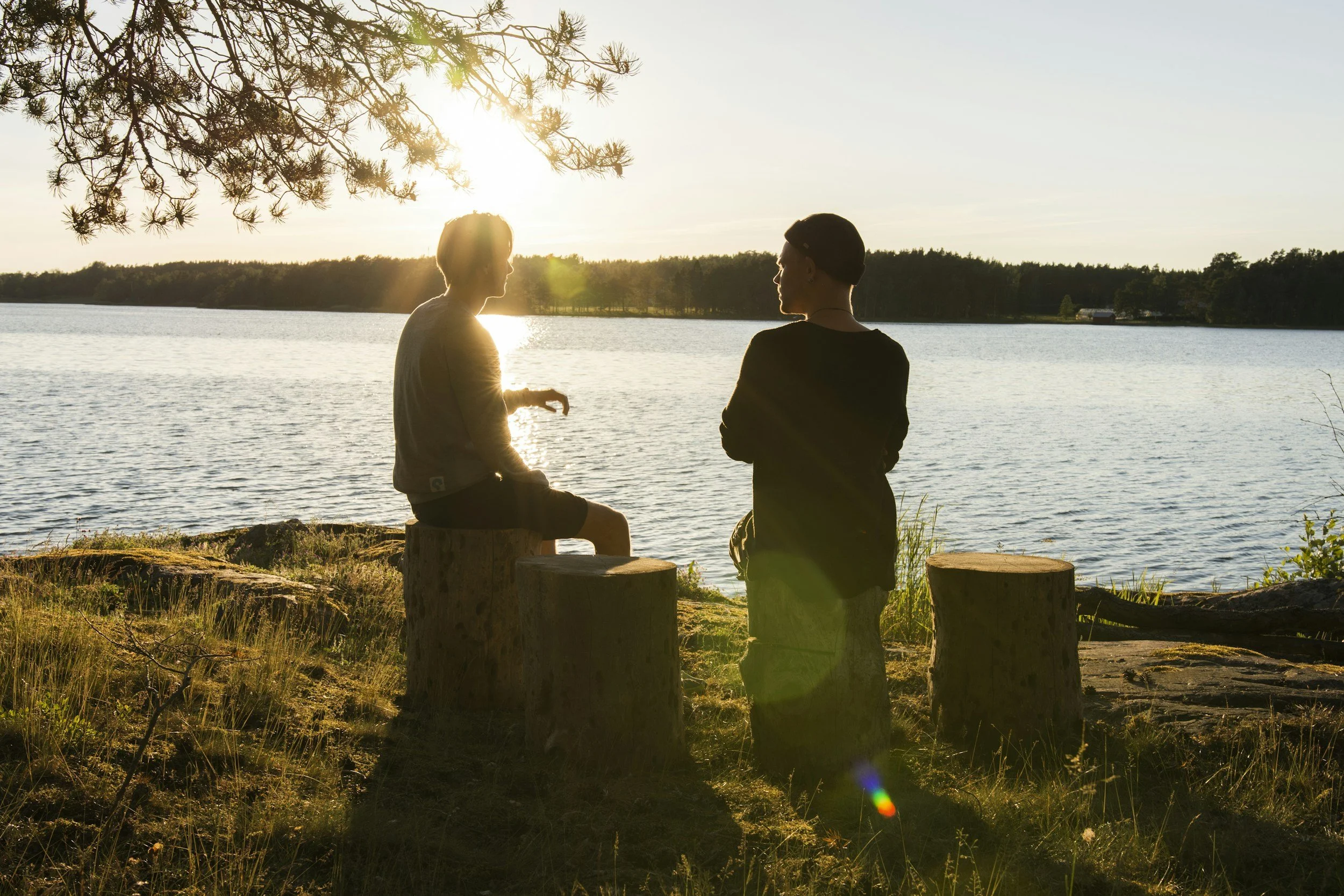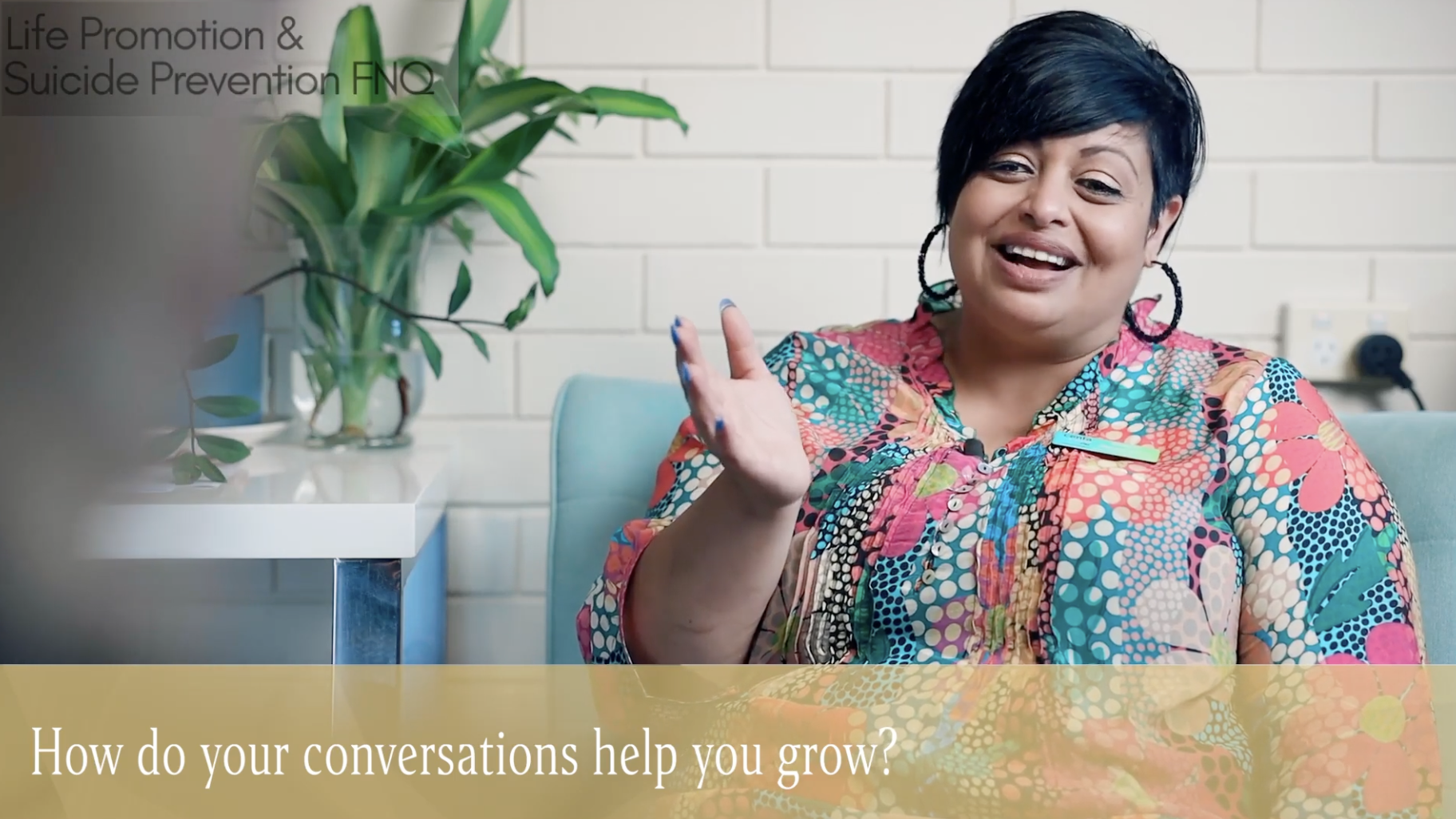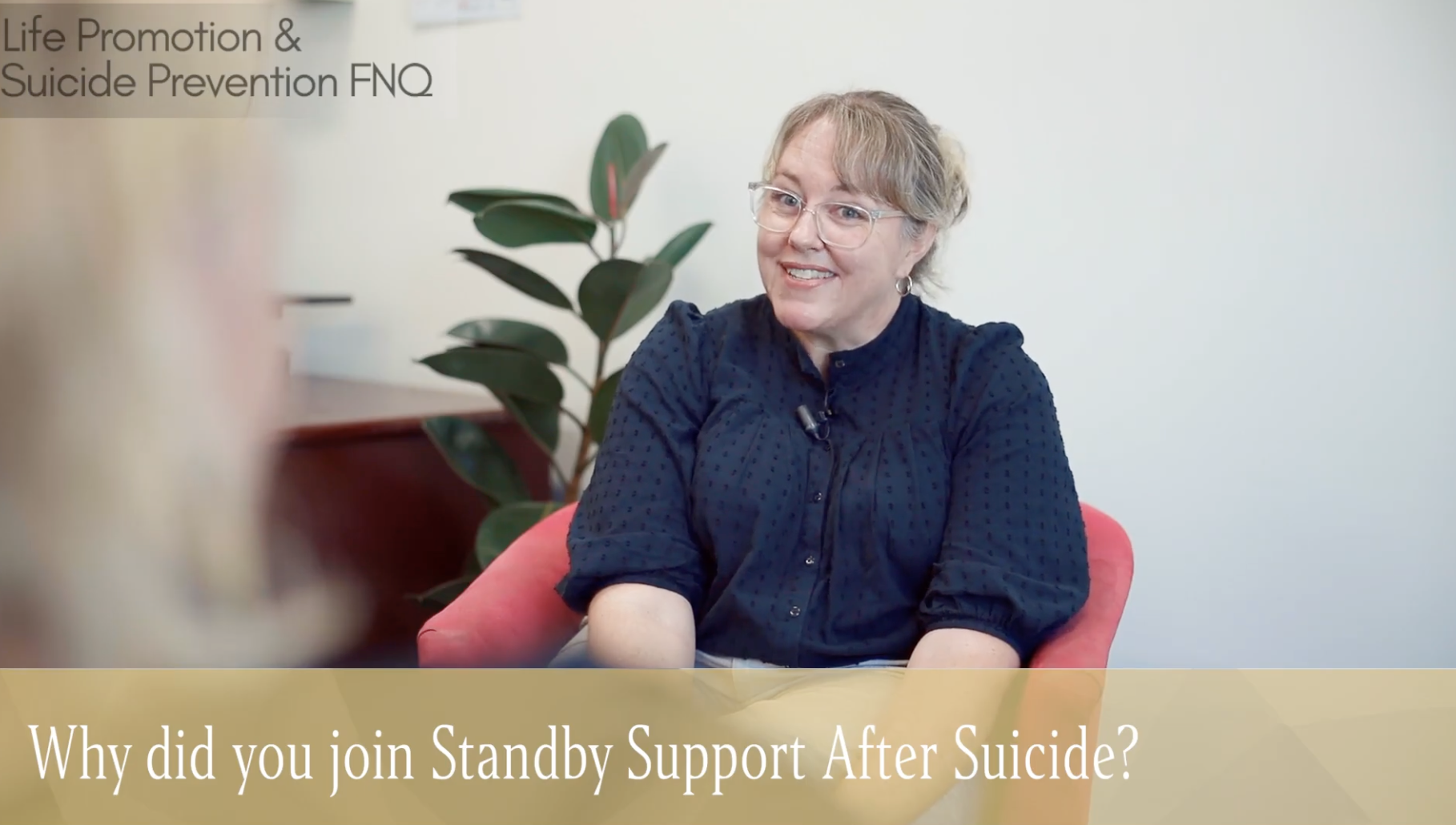
Video Resources
How to have a helpful conversation
When someone is struggling, simply starting a conversation can feel daunting.
The “How to Have a Helpful Conversation” video resources were created to show that supportive conversations don’t need to be scripted or complicated. At their heart, they are about humanity, authenticity, and connection.
Why did we make these?
These videos were developed through the Life Promotion and Suicide Prevention FNQ Collaborative, a group that brings together people and organisations working towards a common agenda: reducing suicide and promoting life.
As part of this work, a Stigma and Language session in 2024 identified the need for simple, practical tools to help people feel more confident in offering support.
The videos feature real members of the Collaborative sharing real-world insights and experiences, offering a behind-the-scenes glimpse into what helpful conversations can look and sound like.
These resources are available on Spotify and Apple Podcasts!
These videos are for anyone who cares—friends, family members, colleagues, community leaders, or professionals—who want to learn how to hold space with empathy and compassion.
Who are these resources for?
Each video is accompanied by question cards to spark reflection and discussion. They can be used for:
Individual self-reflection
Professional development
Team discussions
Communities of Practice
How to use these resources
Ambika Gautam
Ambika has worked at Centacare FNQ for eight years, supporting newcomers and diverse communities through Centacare Multicultural Services. She is passionate about creating welcoming spaces and delivering programs that foster integration, wellbeing and social cohesion. Ambika believes meaningful engagement is built through listening, empathy, and culturally sensitive dialogue.
Andrea Obeyesekere
Andrea is the General Manager of Community Engagement & Support at Centacare FNQ. She is passionate about working alongside diverse communities (particularly migrants, refugees, and asylum seekers) to co-create solutions that reflect their lived realities. Andrea believes meaningful change begins with listening deeply and valuing the strengths within communities.
Javier Suarez
Javier is a Team Leader at Centacare FNQ with more than 20 years of experience in the Human and Social Services sector. Since migrating from Colombia 23 years ago, he has dedicated his career to supporting diverse communities. He believes true connection begins with listening deeply, valuing strengths, and building trust.
Schania Czygan
Schania is a proud Kuku Yalanji / Butchulla woman from the Daintree with extensive experience in Aboriginal health service delivery. Passionate about suicide prevention, she works to destigmatise the conversation and create safe spaces for healing. She believes deep listening means ensuring people have the space to share their own story.
Shelley Richens
Shelley is a Senior Response Worker with StandBy Support After Suicide in North Queensland. She supports people bereaved by suicide with empathy and care, while also recognising the power of everyday conversations. Shelley believes that a simple, kind exchange can sometimes be truly transformative.
Bernard Sabadi
Bernard is a Badu Islander Torres Strait Islander man and the Founder of Kunjur First Nations Men’s Collective. Driven by the heartbreaking loss of a strong community member to suicide, he is building safe spaces for First Nations men to support each other. Bernard believes there is no strength in keeping things bottled up, and healing begins with sharing.
Emma Sansom
Emma works in a residential mental health program with a background as a peer worker. She values helpful conversations not only in her professional role but also in everyday life, believing you never know when someone might feel safe enough to ask for help.
Colin Baira
Colin is an Aftercare Worker with Apunipima’s Culture Care Connect program. With experience supporting people in vulnerable situations, he believes trust grows from listening carefully, respecting people’s stories, and building common ground.









